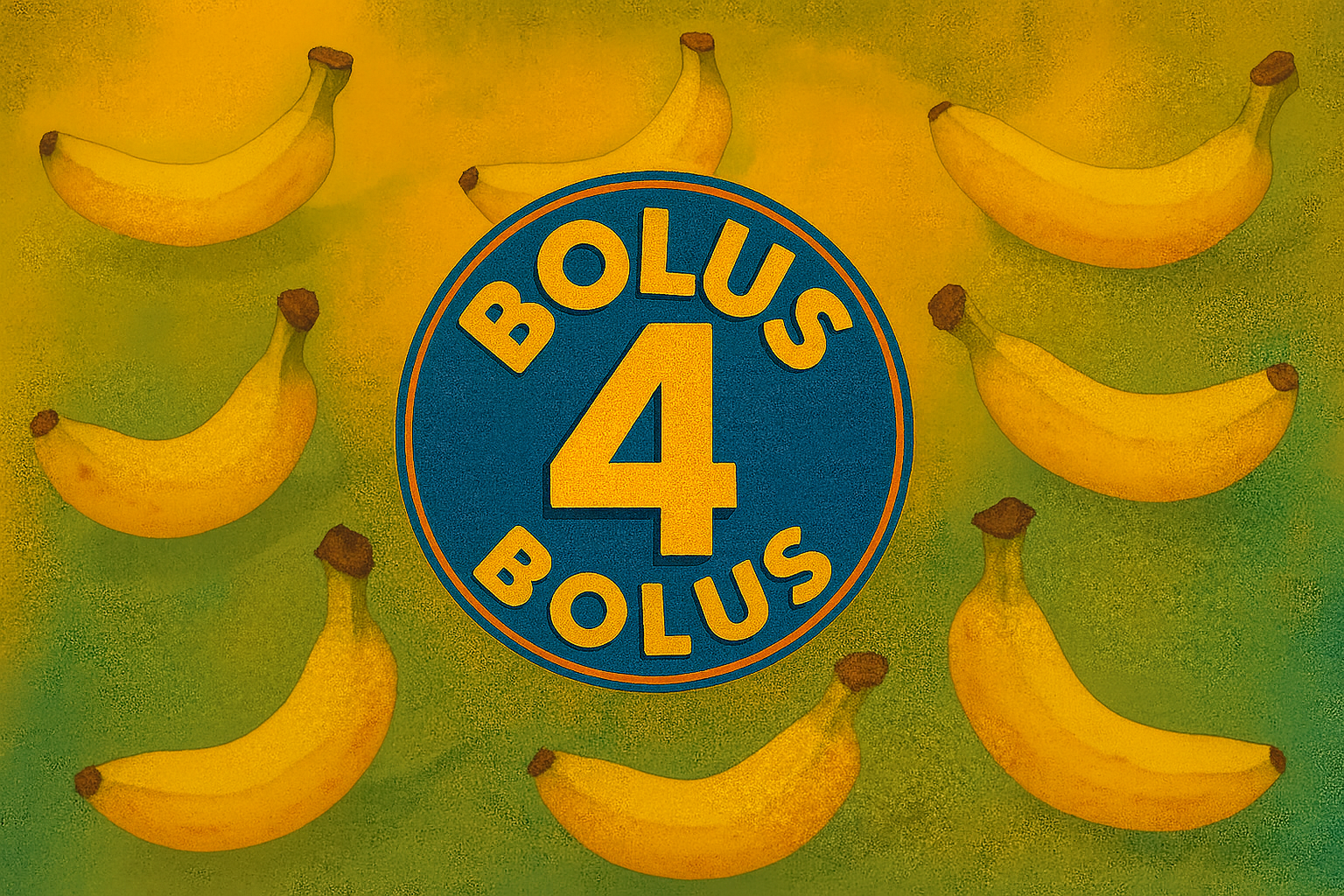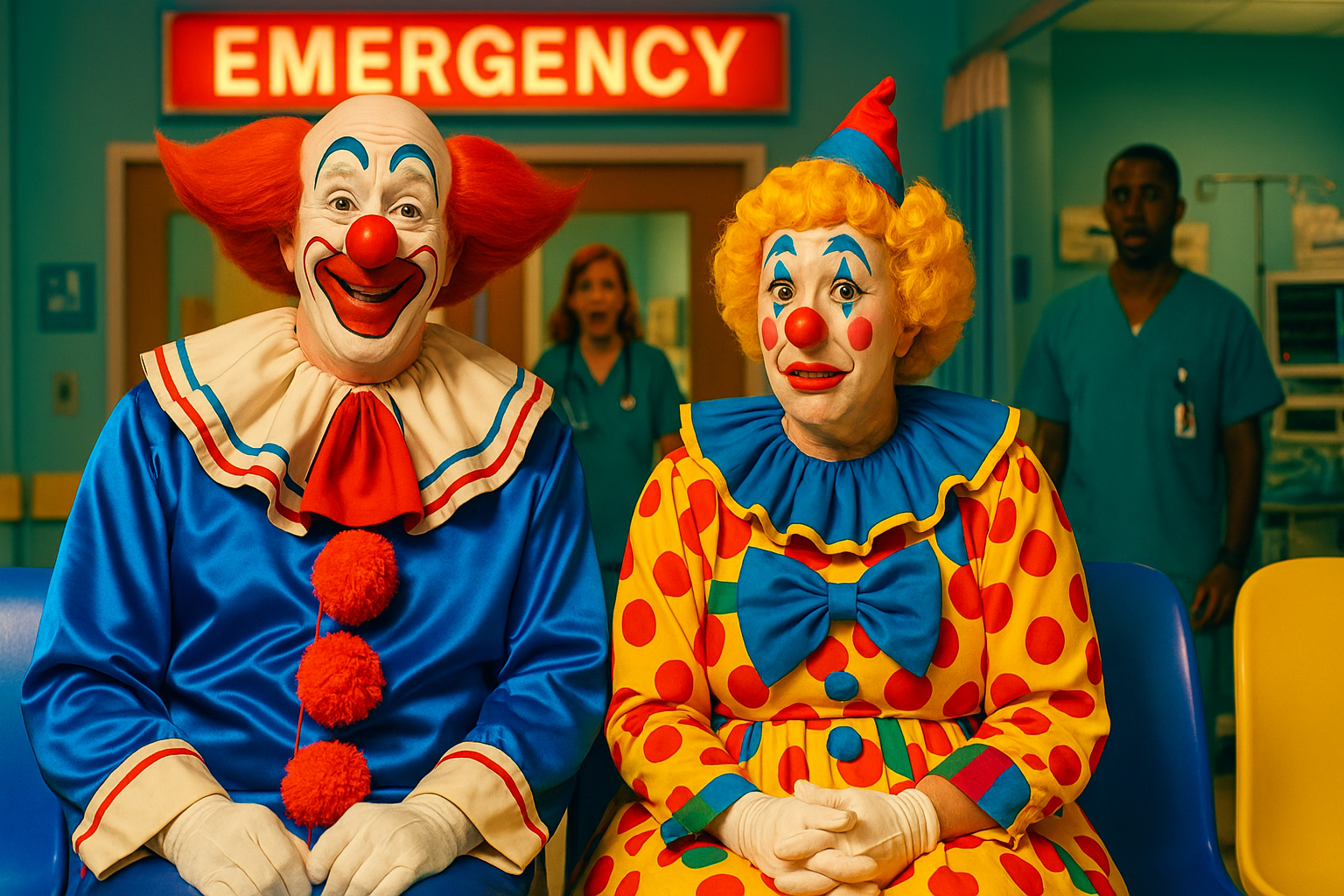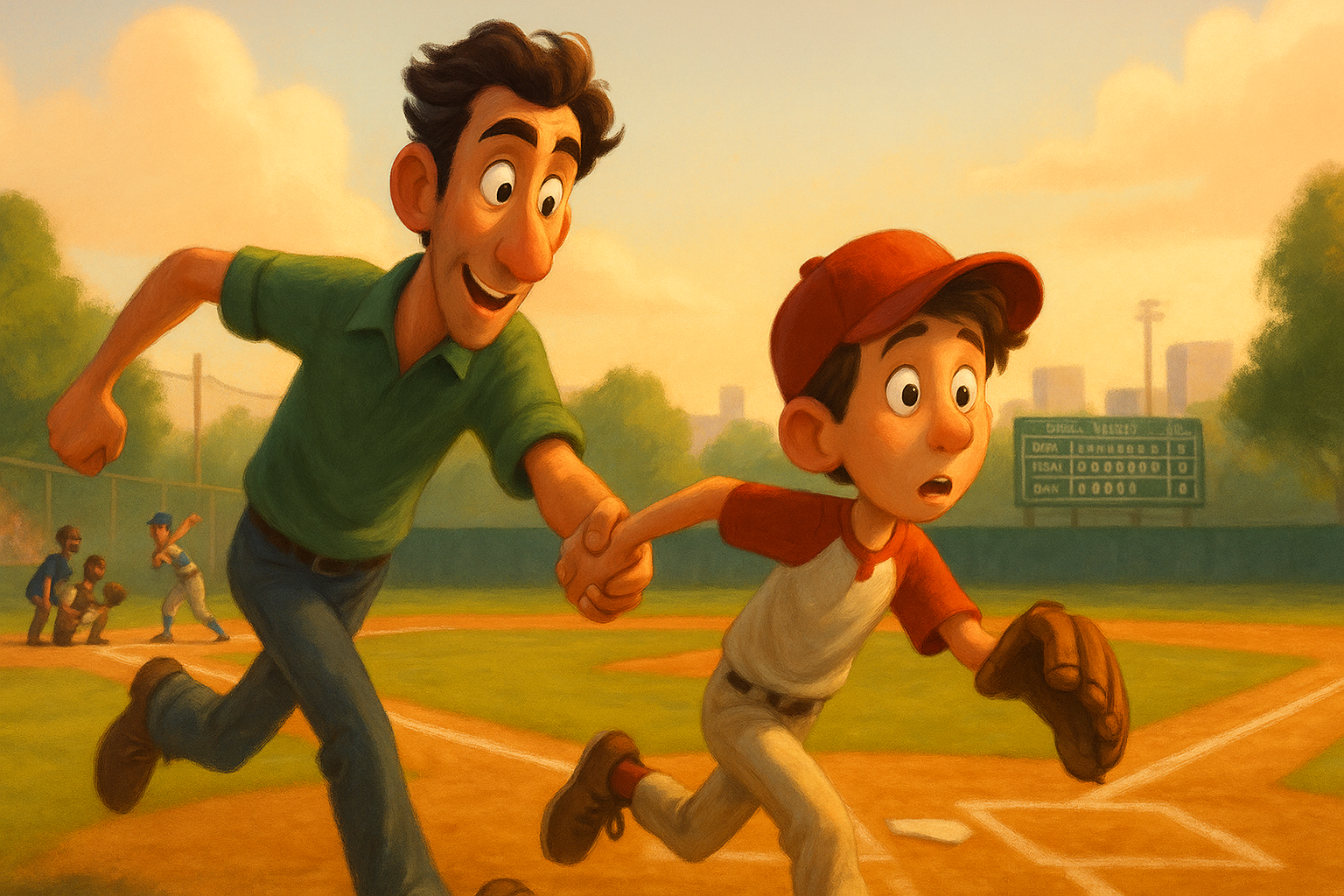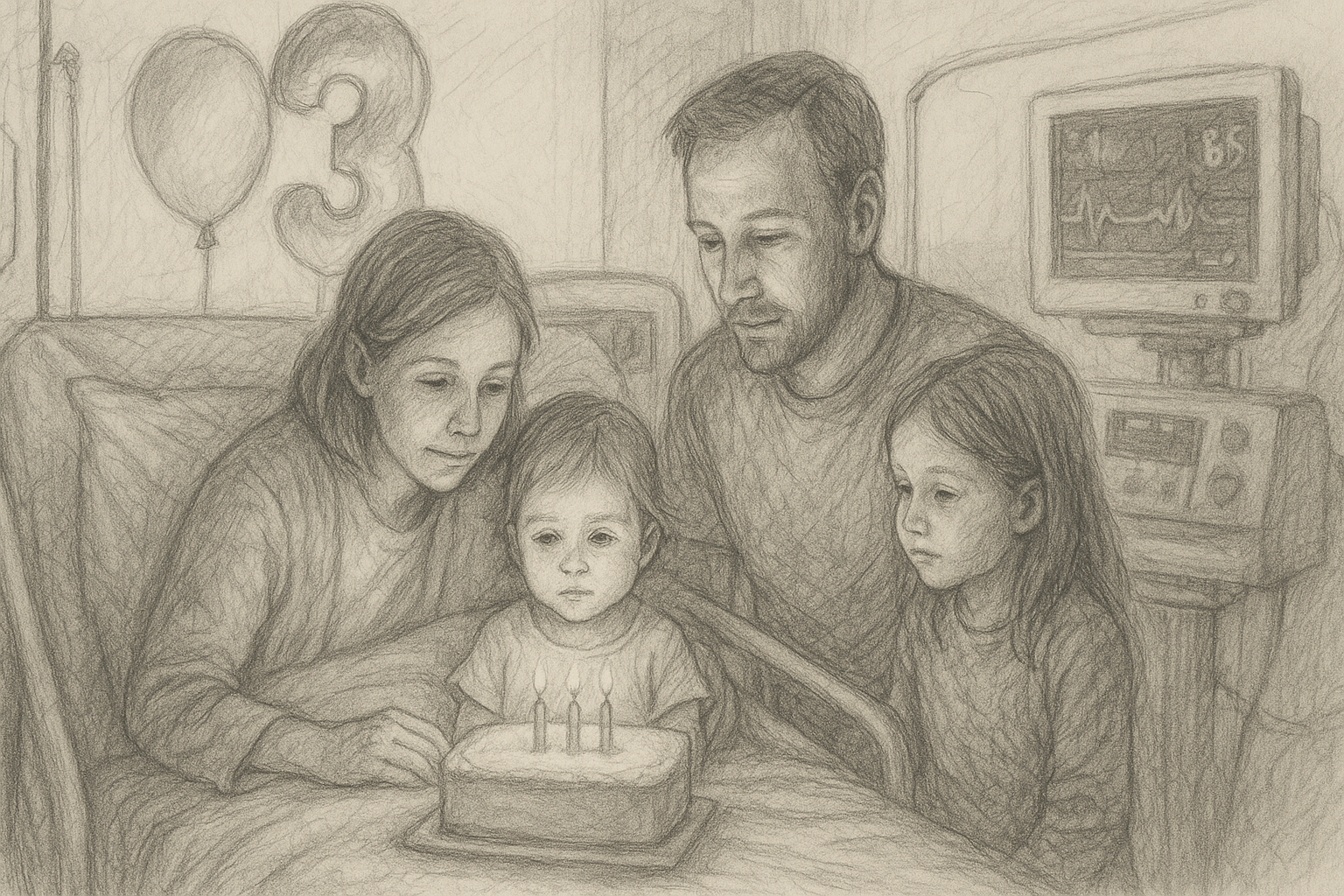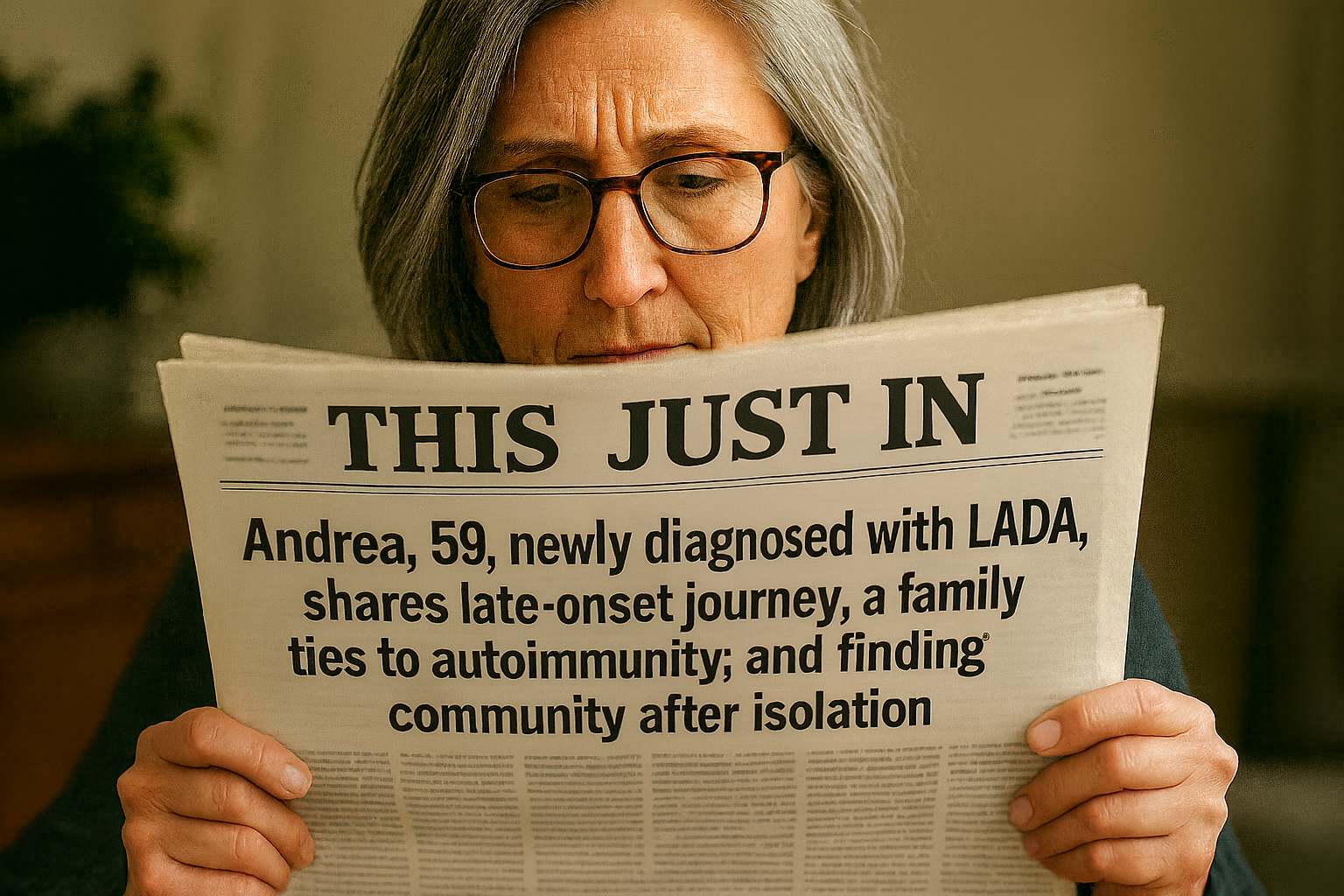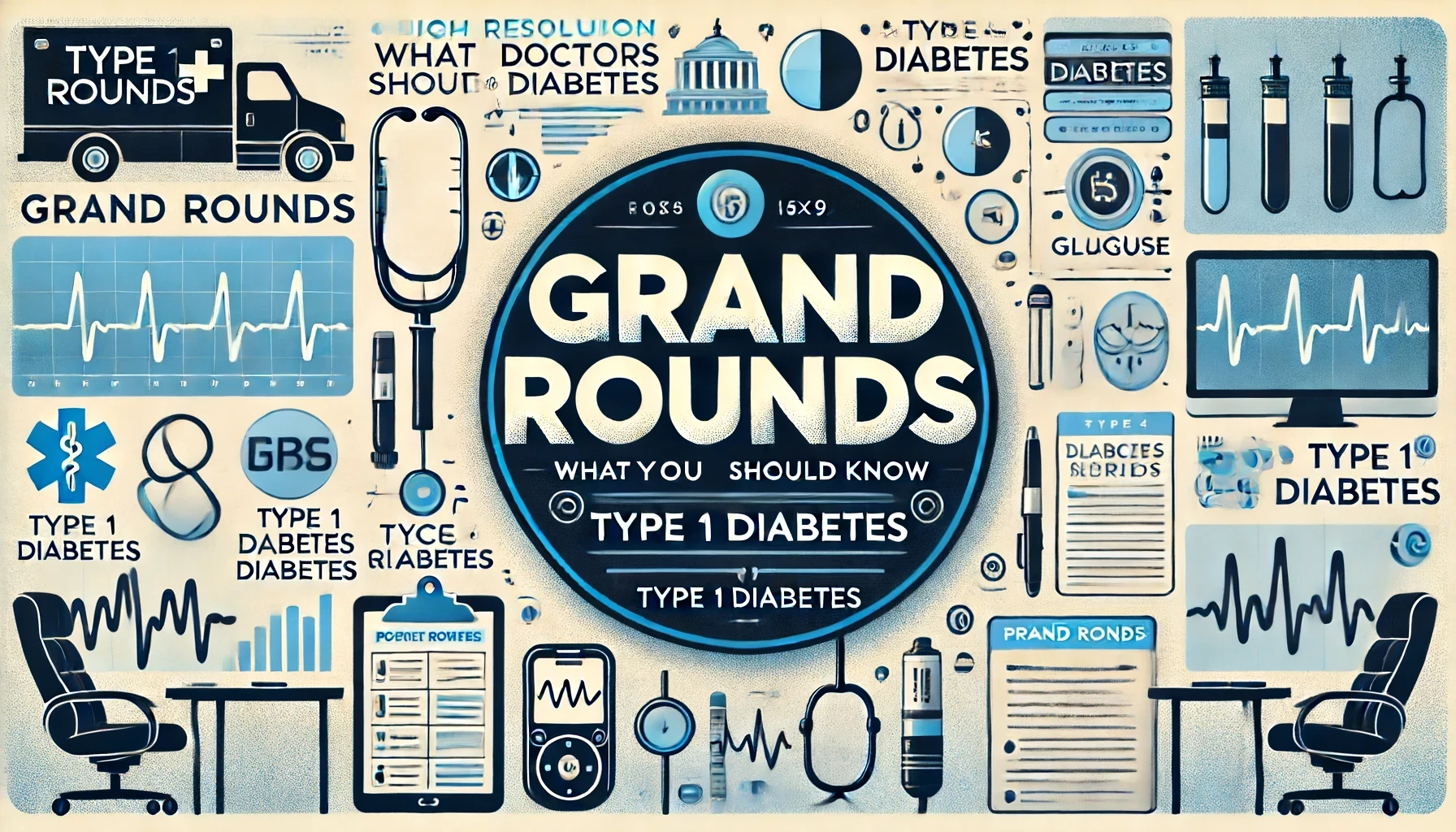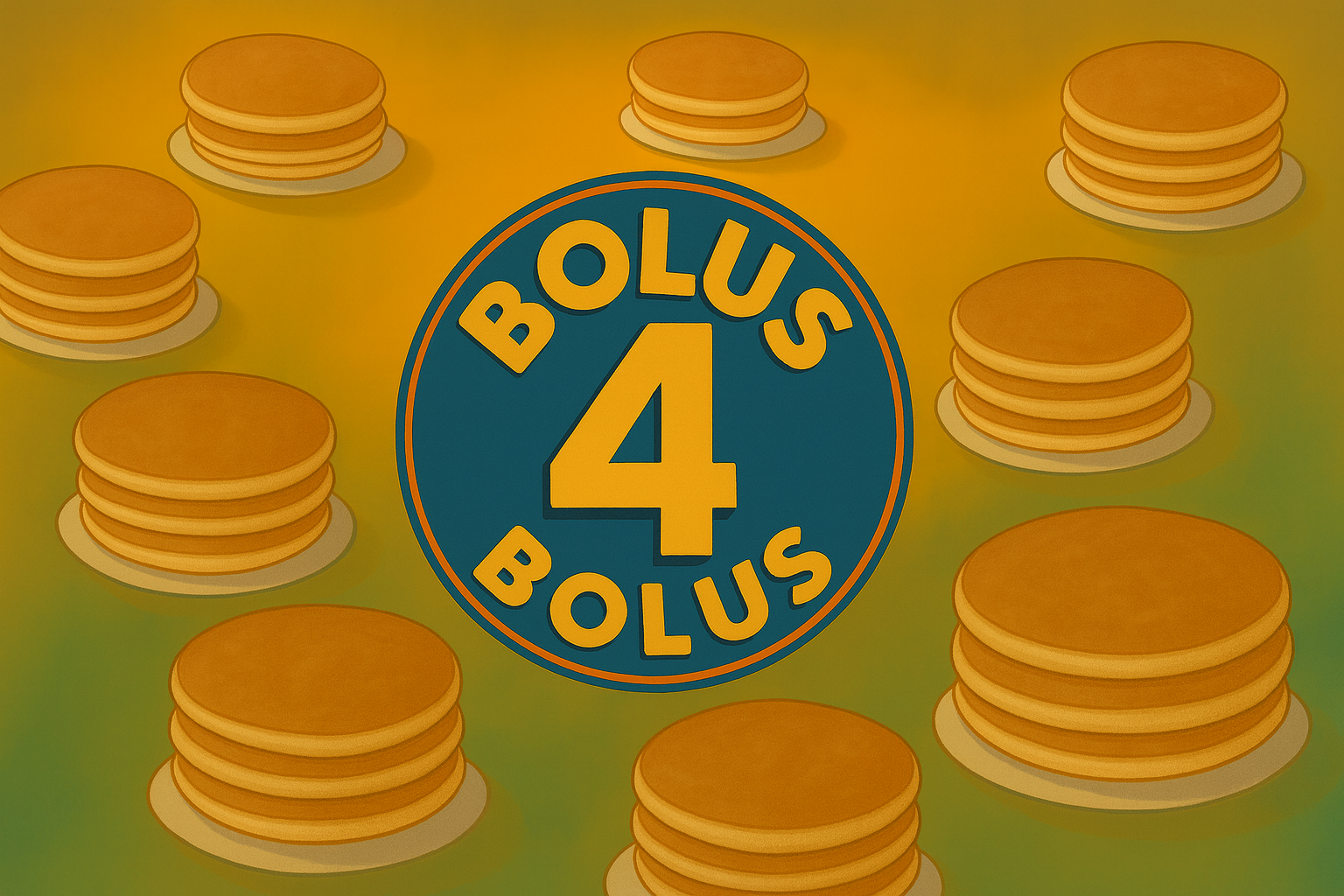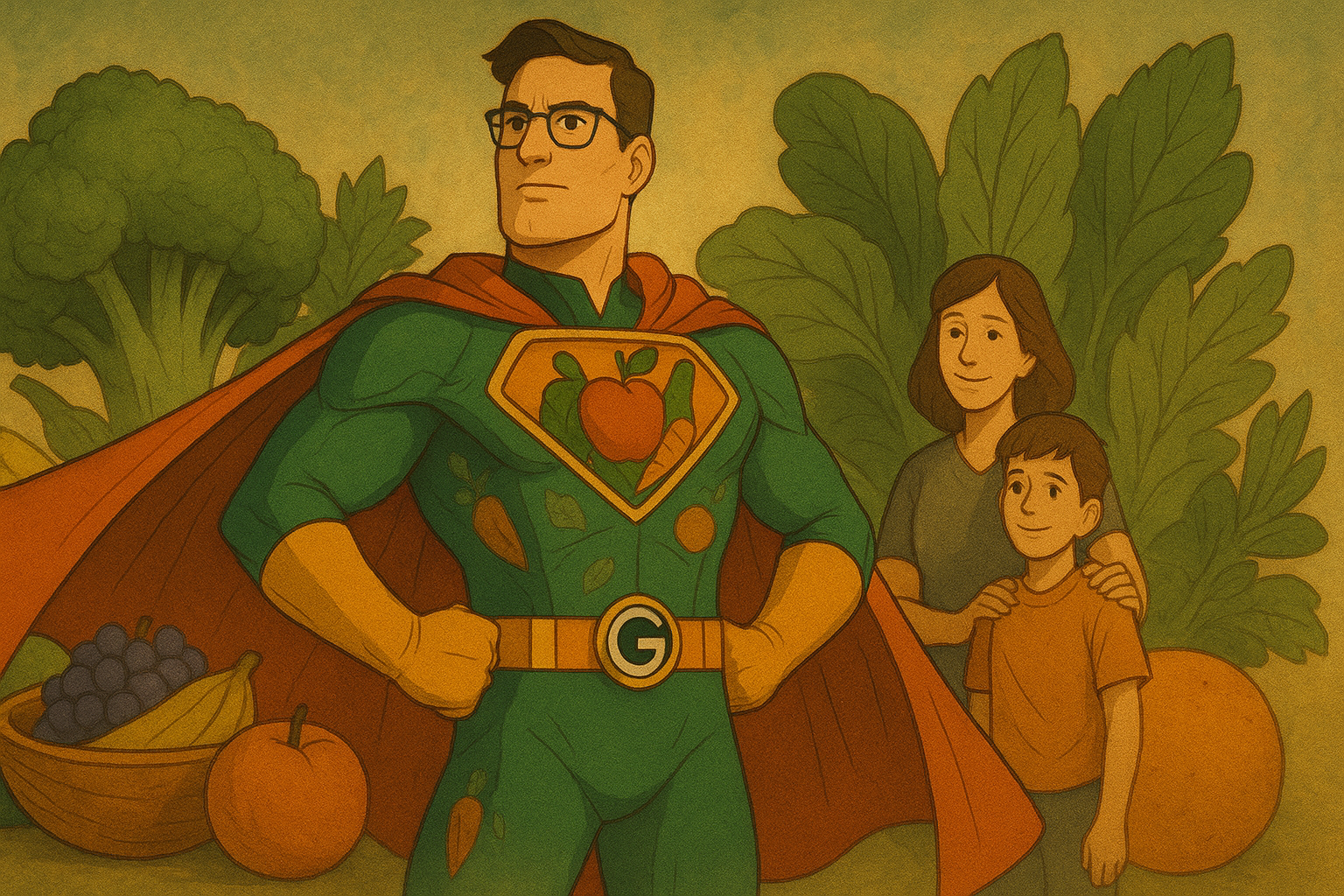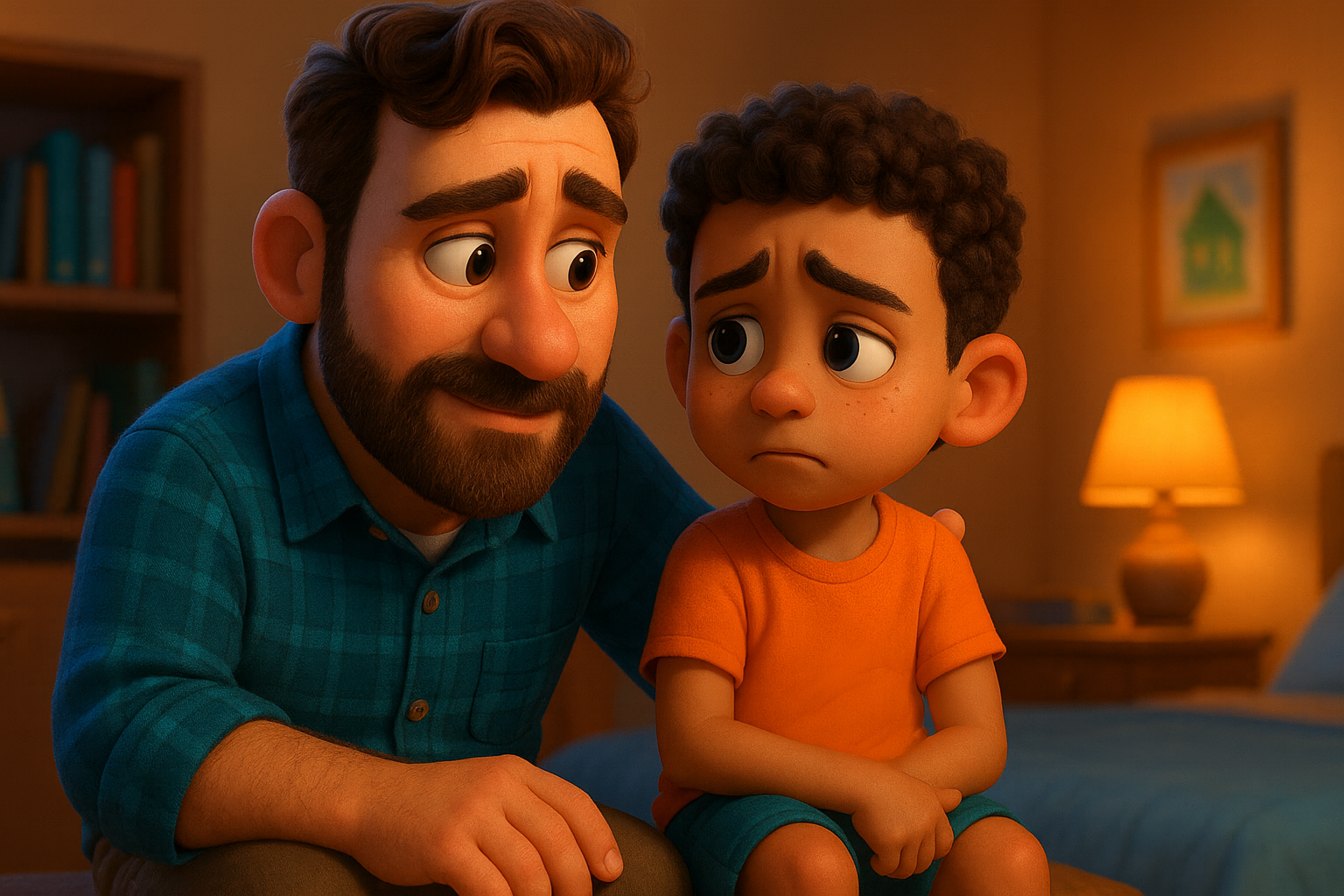#1614 Somebody’s Always Peeing - Part 1
You can always listen to the Juicebox Podcast here but the cool kids use: Apple Podcasts/iOS - Spotify - Amazon Music - Google Play/Android - iHeart Radio - Radio Public, Amazon Alexa or wherever they get audio.
Monica shares her son Timothy’s type 1 diabetes journey, from diagnosis to teenage independence, opening up about fear, resilience, and finding balance as a parent learning to let go. Part 1 of 2
+ Click for EPISODE TRANSCRIPT
DISCLAIMER: This text is the output of AI based transcribing from an audio recording. Although the transcription is largely accurate, in some cases it is incomplete or inaccurate due to inaudible passages or transcription errors and should not be treated as an authoritative record. Nothing that you read here constitutes advice medical or otherwise. Always consult with a healthcare professional before making changes to a healthcare plan.
Scott Benner 0:00
Friends, we're all back together for the next episode of The Juicebox podcast. Welcome.
Monica 0:16
Hi. I'm Monica. I am mom of Timothy, who is 17 years old, and he was diagnosed with type one in October of 2020
Scott Benner 0:27
I am here to tell you about juice cruise. 2026 we will be departing from Miami on June 21 2026 for a seven night trip going to the Caribbean. That's right. We're going to leave Miami and then stop at Coco k in the Bahamas. After that, it's on to St Kitts, St Thomas and a beautiful cruise through the Virgin Islands. The first juice Cruise was awesome. The second one's going to be bigger, better and bolder. This is your opportunity to relax while making lifelong friends who have type one diabetes, expand your community and your knowledge on juice cruise 2026 learn more right now at Juicebox podcast.com/juice. Cruise. At that link, you'll also find photographs from the first cruise. Nothing you hear on the Juicebox podcast should be considered advice medical or otherwise, always consult a physician before making any changes to your healthcare plan or becoming bold with insulin. This episode of The Juicebox podcast is brought to you by my favorite diabetes organization, touched by type one. Please take a moment to learn more about them at touched by type one.org on Facebook and Instagram. Touched by type one.org check out their many programs, their annual conference awareness campaign, their D box program, dancing for diabetes. They have a dance program for local kids, a golf night and so much more. Touched by type one.org. You're looking to help or you want to see people helping people with type one. You want touched by type one.org. I'm having an on body vibe alert. This episode of The Juicebox podcast is sponsored by ever since 365 the only one year where CGM that's one insertion and one CGM a year, one CGM one year, not every 10 or 14 days ever since cgm.com/juicebox this episode of The Juicebox podcast is sponsored by the Omnipod five and At my link, omnipod.com/juicebox you can get yourself a free, what I just say, a free Omnipod five starter kit, free. Get out of here. Go click on that link, omnipod.com/juicebox check it out. Terms and Conditions. Apply. Eligibility may vary. Full terms and conditions can be found at omnipod.com/juicebox links in the show notes. Links at Juicebox podcast.com.
Monica 3:05
Hi. I'm Monica. I am mom of Timothy, who is 17 years old, and he was diagnosed with type one in October of 2020, almost five years ago. Yes, almost five years ago. Okay. He was 12 at the time. He was 12 at the time.
Scott Benner 3:21
Okay, do you have any hype, any autoimmune stuff like hypothyroidism, or anything like that?
Monica 3:28
It's interesting because I was hypothyroid during my last couple years of high school, and then beginning of college, was on Synthroid, and then it went back that I didn't need to take thyroid. I've had it tested for the rest of my life since then, and right now, I have a very kind Doctor Who is saying, Hey, your t3 and t4 levels are a little bit low. I don't have antibodies showing that it definitely has Hashimotos or anything. But she said, let's, you know, let's try working with a little bit of the natural thyroid to see if we can improve some symptoms. And thanks. So it's interesting, because I do, I know your next question may relate to any auto immune in the family. My sister has mixed tissue mix connective tissue disorder, which has features of scleroderma and dermatomyositis, so they kind of can't categorize it, but I have a sister in law, not related, who has lupus, and she said, really, with a lot of the autoimmune you've got overlapping symptoms, and they doesn't really matter what they call them, they're using the same treatments for most of them. So it doesn't really matter, but you have characteristics of
Scott Benner 4:47
each different things, right? Yeah, so you have how many children
Monica 4:52
I have, three. I have Peter, who's 13, Timothy is 17, and Jacob is 19,
Scott Benner 4:56
and when he was diagnosed, to. You by surprise,
Monica 5:01
yes and no. So it was, it was October, and during that summer, it was covid, and we had decided to get a water cooler. We noticed that he was drinking a lot of water. Actually, my my husband noticed it, and he had been diagnosed pre diabetic, and then type two. And he, he first started saying to him himself, oh, I'm drinking so much water. I'm drinking so much water. So when Timothy started drinking on a lot of water, he had, you know, Dave was thinking, hey, you know what? You know what, if there's diabetes. And so he was thinking it from a type two perspective. I think, you know, there was no reason for us to believe that there was a type one issue. But he's he was drinking more and more. Your
Scott Benner 5:45
husband gone through that, and he saw it with you know, at first he probably just thought, See, I knew they were going to drink all this water is going to cost me an arm and a leg to have this water cooler here
Monica 5:55
Precisely, precisely what we thought, because it's a novelty. And it was the summertime, and it was hot, and we were home all the time. We weren't out and about as much, so the water consumption was high. And I Yeah, and I looked at and I thought, oh. I said, No, you know. And I I didn't want anything to be wrong, so I didn't in. And I am tend to, I do tend to worry about, you know, possible things. I overthink things. But I didn't jump on that. And I didn't, I didn't really think anything of it. Then as the summer went on, Timothy said, you know, I've lost some weight, and now he had gotten a little bit, I mean, thicker, I guess. And teenage boys tend to do that as if they'll go through phases where they grow out and then up and out and then up. So he was, he had a little bit of a punch, but nothing big. But he said, You know, I've lost weight, but then he had lost a bunch more weight. And I called the pediatrician. I said, you know, we need to come in and get checked out. We got in there and he had lost, I'm trying to think, 10 pounds or so, and I could see on the his face, the PA his face, that, you know, he was like, because he was reassuring me, you know, everything's probably fine. Then he looked and he said, he went, Okay, let's, let's
Scott Benner 7:12
test him. Did you bring up diabetes when you brought him in, or did they bring it up?
Monica 7:16
I honestly am blanking. I remember, I think I said we're wondering if he possibly has diabetes, and it was the weight loss, and the, I said he's got weight loss and he's he wasn't saying that he was going to the bathroom all the time. And I don't know Sure, my my boys, somebody's always going to the bathroom. I don't know. Um,
Scott Benner 7:35
three boys is a lot, isn't it? Plus your husband is four, right? Yeah, right,
Monica 7:39
exactly. So I don't know somebody is always peeing, so I hadn't noticed that, but I say he's been drinking a lot of water, and he's lost weight. And so I think they thought, okay, nervous, mom. But then when he got on the scale, then he said, Okay, so they had someone in to did blood work for the A, 1c, but then after that, they came in with the meter, which I don't know why it wasn't in the other order, it read high and they said, Wait a minute. And they got the doctor to come in and try it again. And they said, Okay, we're sending you over to Morristown hospital, to the children's hospital there. You want to go there instead of the hospital that's near me, because they'll be well equipped to deal with this.
Scott Benner 8:21
You said you can overreact to things, right? And so did you have that kind of reaction, or did you hold it together? Was your husband with you in the office? Did you go right to the hospital? I
Monica 8:31
came home, and I don't know where. I'm trying to think of where Dave was at the time, but I remember very clearly I went out in the in the driveway, and I called my dad, and I said, we're going to be, you know, Timothy has type one diabetes, we're going to be going over to the hospital. And I said, you know, it's all going to be okay, but I don't know how much more i i can take, because in March of 2020, my mom passed away from stage four cancer. It was the weekend that everything shut down for CO for covid, yeah, so we actually were driving back to New Jersey. Exits were shutting down, and everything hers was the last funeral they were able to have at that church. So I had been grieving, and, you know, at home and by myself with the kids over the course of that summer, but then to be hit with this and say, All right, I'm going to pick myself up, and now we're going to, we're going to work on this. But I thought I remember feeling this is this is overwhelming. And you know what was me? And you know, how come I gotta deal with one more thing.
Scott Benner 9:42
How old are you today? I am 5353 Oh, wow. Are you okay? Yeah, yeah. So you're, you're in, you're 48 when this is happening. Then, yep, yep, your mom, your mom's passed away. Cove, it's happening. Your son gets type one diabetes. So I hear you saying that I know this is going to be okay, but I. Don't know if I'm gonna make it to the point where it's okay or not. Was that the idea like, maybe I'll sputter out here before we even get to the part where this has worked out,
Monica 10:07
I see, and I've noticed this too, is, is that I I'll get really nervous ahead of time. Of a lot of things now, all kinds of things with parenting, things going on is, and I keep telling this to my kids too, is that most of the time, that anticipation and the worry of what if is way worse than when you're actually dealing with something? Yeah. So when I when I am in a situation where there is something that's wrong and I need to fix it, I am not freaking out until afterwards, and there's a letdown. So I, you know, I shed a little tear in the in the driveway, went in, finished packing up the bag with Timothy.
Scott Benner 10:50
How did your son handle it like it not just in the moment, but in the preceding days and weeks? Was it overwhelming for him, or did he seem like he was feeling
Monica 10:59
again, knock on everything, because I do still have two kids who, you know, have a lifetime ahead of them. But we say if one of them was the one, Timothy was the Timothy is the one, the chill just rolled with it. This is kind of funny that there was this magazine. I think it's run by like, the same place they made highlights. You, since we're the same age, you might know the highlights magazine that we all look looked at as kid. There's these different ones, and one of them is a science magazine, and they had had a cartoon thing about type one diabetes, like a two pager. We had gotten home from a pediatrician, he went over to that he's a big reader, and he flipped to it, and like re read the little cartoon of this girl on a playground explaining to her classmates in the cartoon format that she has type one and what that means. And so he read again over what those details were as we were getting ready to go to the hospital. My story about how he accepted it, though, is after our stay, and we stayed, I think, about three days, they asked him if he wanted a wheelchair out, and he kind of looked at them and he, you know, he was like, you know, he's like, I'm fine. He said, Really, not that much has changed. Now I'm going to be taking a little blood out and putting some insulin in. And
Scott Benner 12:22
that was just his attitude about it. Yeah, that's awesome, yeah. And you think just seeing that little cartoon gave him some, I guess, perspective that he that he needed,
Monica 12:32
you know, context and a little bit of information about what it was, yeah, that was his only sense of what I mean. Thankfully, he'd had that. Because I don't know how with 12 year olds, you say to them, what's type one diabetes? Yeah, I think it varies depending on the people's families, and you know who they've come in contact with that, they may have no understanding of that, but what he had, and he could kind of grasp at was, wait a minute, I just read about type one diabetes. Let me read through that. And I think that cartoon probably did calm him down.
Scott Benner 13:09
Yeah, as much about how he deals with it changed in the five years.
Monica 13:15
No. One of the things that I, that I did want, want to talk about was the transition that I'm dealing with now, with him at age 17, with me starting off in the beginning, I am a researcher. I immediately I read, think like a pancreas and pumping insulin. And I I have not been a Facebook person, and I had never listened to a podcast, so I reached out for books, and I knew of I knew someone who that knew someone who had been diagnosed with LADA and was put into contact with her, and those were my initial sources of information, along with the people at at the hospital. So I have always been, okay, I've got all this information. This is what we're going to do now. As the years go by, I'm explaining to him more and more what's going on, what to do, how I handle it, and this process of what I think a range should be. And what Timothy thinks an acceptable range is is a bit of a difference.
Scott Benner 14:27
Is what he thinks of as an acceptable range based on health, or is it based on his desire to touch diabetes? And how many times a day, today's episode is brought to you by Omnipod. Did you know that the majority of Omnipod five users pay less than $30 per month at the pharmacy? That's less than $1 a day for tube free automated insulin delivery, and a third of Omnipod five users pay $0 per month. You heard that right? Zero? That's less than your daily coffee. For all of the benefits of tubeless, waterproof, automated insulin delivery. My daughter has been wearing an Omnipod every day since she was four years old, and she's about to be 21 my family relies on Omnipod, and I think you'll love it, and you can try it for free right now by requesting your free Starter Kit today at my link, omnipod.com/juicebox, Omnipod has been an advertiser for a decade. But even if they weren't, I would tell you proudly, my daughter wears an Omnipod. Omnipod.com/juicebox Terms and Conditions apply. Eligibility may vary. Why don't you get yourself that free starter kit, full terms and conditions can be found at omnipod.com/juicebox when you think of a CGM and all the good that it brings in your life, is the first thing you think about. I love that I have to change it all the time. I love the warm up period every time I have to change it. I love that when I bump into a door frame, sometimes it gets ripped off. I love that the adhesive kind of gets mushy sometimes when I sweat and falls off. No, these are not the things that you love about a CGM. Today's episode of The Juicebox podcast is sponsored by the Eversense 365 the only CGM that you only have to put on once a year, and the only CGM that won't give you any of those problems. The Eversense 365 is the only one year CGM designed to minimize the vice frustration. It has exceptional accuracy for one year with almost no false alarms from compression lows while you're sleeping, you can manage your diabetes instead of your CGM with the ever since 365 learn more and get started today at ever since cgm.com/juicebox one year, one CGM.
Monica 16:44
I think it's it's that. But then also he and my husband, they, they were told from the beginning they don't die, advice, right? 70 to 180 7180 and so I don't want to scare Timothy, and I'm not doing it out of panic, either, but I know that every time you're going higher, you're introducing some more possibility of risk, or a possibility of things that are not good for your body. So I, you know, I really do want to keep it in a tighter range he doesn't understand the, you know, stickiness, and the, you know, the tiny little vessels, and all the stuff that we've talked about
Scott Benner 17:30
Monica, because you haven't shared that with him yet.
Monica 17:34
I have, you have, but I have, and I say, you know, every time your blood sugar gets high, it's sort of, it's kind of scraping. You've, you've described it as the scraping, you know, sort of scraping away in there. And that's not good. But he doesn't have, and I'm glad he's chill, and he doesn't have the sense of the sense of urgency, but I see something, and I think, crush it. Crush it. We gotta take care of this. And he's like, Yeah, I, you know, I took some insulin, it'll be fine again. It's the sense of urgency and how he reacts, and it's not that he ignores anything, yeah, but he isn't as aggressive, and he doesn't act as as quickly as I would. And I need to gradually accept that we're different people, and I've been managing this, but the goal as a parent is to have your child become independent and manage their own life, and you are equipping them with the skills to do that.
Scott Benner 18:32
It's probably one of the more difficult parts of the maturation of this relationship, the diabetes, part of the of the relationship between a parent and child. I think maybe one of the most difficult parts is when you make the realization that you've told them they understand, and now you're waiting to see if they care enough to implement Yes,
Monica 18:52
exactly, and that is what I really am struggling with as especially during this past year, because he's gotten his driver's license. His friends have driver's licenses. There's a lot more of hey, we're going out to eat, and then I'm texting him. I do have to say that I really, really wish that insulet would have given a View app for us, because when we were on the dash and I could see what boluses he had given, I felt like so, you know, so much less of a nag than I do now texting him saying, Did you correct already fat and protein, please. And he'll say already did. Or, you know, sometimes he doesn't. But I could see before I could look at the I could look at my app, as you know, in that follower sense, and say, Oh, I see what's on board. I see that he just gave so then I didn't have to nag him. So I feel a little bit more helicopter ish now, because I'm always having to ask.
Scott Benner 19:57
So the visualization that you can make. Often stops you from needing to actually contact him, which stops you from bugging him, and him feeling bugged, and vice versa, you feeling like you're bugging him, right?
Monica 20:09
If I had the data, which I don't anymore, because, because of Omnipod five,
Scott Benner 20:13
Omnipod five doesn't have an app where another person can kind of see what's going on, how much insulin is in that, right?
Monica 20:19
Because the dash had the View app. It was Omnipod view. And then so you would look, and you would see, you would see iob, and you would see the lat the time of the last dose. Now we've got the three hour delay in these glue row and different apps that I've because I've looked to see if there's anything, but no, you you can't get that information.
Scott Benner 20:40
Omnipod say they were going to make that and they haven't, or did they never mention it? Never
Monica 20:45
mentioned it. And I've looked and I haven't seen anything. I've, you know, I, you know, I'm sure I was on the customer satisfaction review survey things. I'm filled it out a dozen times because we went to Omnipod five in June of 2022 as soon as it came out, we had been on dash for four months, and I switched right away went, you know, went with it, and just was figuring this out, and then realized over time how much I missed, even just the four months of having that the view, yeah, before that was we had in pen, and So I had visibility with that. And I really do think that that was, that was an awesome thing for us, the in pen, because you could see the doses. And so I again, we had a history of what's going on, and with two people doing don't and with the doses, and with having a teenager, that's an, I think it's a really an excellent thing to be able to see that without the nagging
Scott Benner 21:42
part, yeah, of course. Well, I mean, you're making your plea here, they'll definitely hear it here. So, oh,
Monica 21:49
hopefully. So trust me, it would be great. Yeah,
Scott Benner 21:53
that's awesome. Well, there you go. I think it's a great idea. I see the value in it, like, beyond just management stuff. But like you said, like helping to, you know, not put extra stressors on people's relationships. It's a big I think it could be a big deal, you know, right?
Monica 22:08
I would love to loop, but I know that both my husband and my son would be hesitant to do that. They would be concerned not FDA approved. What is this? You're just dealing with some guy on the internet who's creating something they they would be opposed to that. I would love to have the ability to loop for several reasons, but one of them is being able to have that real time information without constantly being, you know, the diet and the diabetes. Why do
Scott Benner 22:38
you think you're comfortable with it, and they wouldn't be, is it because you're involved online? You see people using it?
Monica 22:43
Yeah, I know so much more about it. My husband is not past a lot of the information that we got at the hospital. He didn't read books, he didn't dive into that. That's always been how I was, how I have been. I thought I wanted to be a reference librarian when I was in elementary school, I just dive into a topic, learn all that I can about it. I just love information. So I when I had something to direct this information, the information gathering, you know, I went into and I read all of that. So I have a more of a comfort level, because I hear of so many people and listen to the loop and learn videos, stuff like that, that I am comfortable with it, but they think, Wait a minute, you know? What if something goes wrong with with the computer program? You know? What if,
Scott Benner 23:32
well, when you share that with them, I mean, have you shared that with your husband? Like, Hey, I've really researched this, and I think this is a great idea, yeah. And you don't get a lot of response back on that, not
Monica 23:43
enthusiasm. No, we started out in the beginning with that, with the MDI, Dave, you know, I have always had a big problem with needles, so, and then now, all of a sudden, I got to inject my kid all the time, and our hospital and malar endo had said, No, it's a year until you can have a pump. So that's, you know, as you know, a lot of needles. He gave a lot of the shots in the beginning, and then I got more comfortable with it. So in the beginning, we were real good with the you count the number of carbs we had our little log. We had to write every single thing down how much we'd given. He was involved in a lot of that. And then we were waking up, Timothy up for blood sugar checks every three hours overnight for the first couple weeks. Couple months in, we got the Dexcom. So Dave was involved more in the beginning, but again, as I'm saying, he still believes that it's you do this, you do this, and you and then you've got to you've got a good outcome, because you did what you were
Scott Benner 24:39
told. He bought the sales pitch that he got the first time, exactly,
Monica 24:43
yeah. And he missed the part where someone in the hospital did say, this is more of an art than a science. But he sort of missed that part. It truly is with all the variables. And he'll look and say, Well, what you know, didn't he dose? Yes, he dosed. How? However, there's the fact that another thing, Timothy likes to run the pods right up into the end. And I know that at two and a half days, or less than 50 units, if we get that,
Scott Benner 25:12
that's not the best time to have a loaf of bread. No,
Monica 25:15
no, because we know that the absorption something's going on and it requires X percentage increase in the doses. But I don't really know how to figure out how much. I just know it definitely takes more insulin on the last 12 hours or so. I say, Timothy, can you change the pod?
Scott Benner 25:35
So, yeah, well, no, I hear what you're saying. That's the human part of it, like if people with type one who don't have kids with type one are listening to you. Probably think when I say it too, they're probably like, oh, yeah, get out of their business. It's up to them. There's more to it than all that, right? And that's part of it, like, but then the the rest of it for you is to realize that they're right to some degree as well. Yes, like, it is just, it is his thing, and it's just, it's hard I imagine, if you're anywhere in your mind, like I am, it's hard to imagine that 10 years from now, you'll have absolutely no sway over your son whatsoever. And what if he's a person who just doesn't take care of his health, right? Like, that's what scares you. And it's funny, because you have two other kids, I bet you don't think about it once, about them. I
Monica 26:20
mean concerns about what, about what they might do 10 years from now.
Scott Benner 26:25
It's tough, because it puts you into that like, into that mindset cost. I think about stuff like that all the time, and when I talk to my brother in law or my sister in laws or whatever, like people, I know that I can sit down and speak like very candidly with about their parenting styles. They don't think about their kids at all, all, not at all. Like, you know, like, I one point, somebody close to me is kid, you know, kid in their 20s is having trouble. And I was like, Well, are they going to the bathroom regularly? And she goes, How would I know that? And I was like, Oh, all right, you know, I said, What about, like, vitamins and this and, like, I'm asking questions. I have no idea, right? Like, no idea. And I was like, oh, okay, right. By the way, there's part of me, Monica, that yearns for that, but then there's also part of me that looks up and sees 60 and 70 year old people with their 30 and 40 year old kids, and their kids are in horrible health situations, and I think they didn't get the information they needed. And now it really, I mean, it's not too late. You could certainly do something for yourself, but it's a lot of wasted time, right? Yeah, right. So you have that feeling too, yeah,
Monica 27:29
it's, it's that balance, because, again, like I said, always into into research, diving into stuff. So I've, before all of this, I've been super interested in nutrition and the effect, you know, the effects on, you know, what, you know, what we eat, and the, you know, supplements and all of that. So when I look at this and think, all right, pre, you know, for long term health, the, you know, these are things that are good for you. And you know, with all three kids and my husband, too, with, you know, I really like the it won't be new now, but it's new as of right now. The series with Jenny about nutrition and looking at these, these building blocks that we're putting in, and how our bodies are processing all of that. So I have to say that in the beginning, I felt a little carb phobic, because we had to count everything. And I thought, okay, so we should be reasonable, not restricting, but kind of restricting the carbs, because that's going to cause more variability. And so we looked for lower carb options, and I realized some of that was fear, so I started working towards being able to dose for what he wanted to eat. However, as Jenny points out, and you were pointing out yesterday with a story about Velveeta, what we want to eat is not necessarily what's best for us to eat. So like you've said just before, you can't you can figure out how to dose for a pop tart. Is that the goal to try to support your child eating Pop Tarts. If you know that that is not the way that long term health is is going to be secured. Yeah,
Scott Benner 29:08
it's a balancing act, that's for sure. If it makes anybody feel any better, this wasn't about diabetes, but it was something health related. Still, I suggested something to Arden recently, and she goes, You don't know what you're talking about. Like, she just hit, and I was like, I've had 17 different conversations with 14 different doctors about this. I might have a grasp of this stronger than a lot of people, you know, like, and what I realized was, is that it was one of those things where she was like, I think this happens to a lot of people. Like, I was trying to talk to her about a supplement, like, nothing crazy, just, you know, keeping her vitamin D level up. That's not a thing she sees impact from Do you understand, like, what I mean? Like, she doesn't wake up one day go I took a vitamin D tablet yesterday, and the next day I felt better. Nobody feels that, but I know it's important to keep her vitamin D level up for a number of reasons. And when she turned to me and she's and I realized for a moment, she just saw me as like, Oh, that's my dad. He thinks he knows something. Thing. And, like, then there was part of me that was, like, on this, like, I'm wrong about a lot of stuff, but on this, I'm right. I absolutely do okay. And then I realized, like, That's it, like, this is a is this a thing you're gonna argue about? Like, it's not, like, I don't wanna create a divide with her over vitamin D, but at the same time, I can think off top my head of four really good reasons why she should be taking it, and I think they're all backed up by a lot of science and a lot of experience with people. And then I just sit there, and I think there's going to be a time she'll be in her mid 20s, like I just have to wait till then, because then you say it again, and she'll take it more seriously, like she's still growing as a pre I know she wouldn't think this. If you brought her in here right now, she'd be like, I'm a fully formed person. I'm as smart as I've ever been. I'm smarter than you, old man. I've heard you say stupid stuff, like she's still stuck in that. But I know, because my son's a little older, that once you get through that last push of defiance, like you start turning into an adult. I really am beginning to believe, like, that's going to be my last stand with Arden. Like that's the spot where I'll have the most success now that she's older, it's going to be like after she's in her mid 20s. I think,
Monica 31:17
anyway, I'm I am hoping for that. But then when I look at talking to people about nutrition and health and wellness in general, I think you have people that are in the realm of they can see why they might want to try something, and some that are not that's just not a higher priority thing for them. Yeah,
Scott Benner 31:39
and they, they might not connect the dots to ever that can happen as well. I mean, nutrition is an example of, like, it's such a good one. Like, I know I'm probably losing listeners by putting up content about nutrition, because some people are probably like, don't tell me how to eat. And I'm I certainly don't think we're doing that. But no, no, no, definitely not. But at the same time, like, I watched a conversation online the other day about soda and there, I mean, people do not understand how bad soda is for them. Like, generally, spam me people, there are people who do understand, but like, the of those who don't, they're just like, it's a drink. They don't see it, you know, like, and you could, you could try to sit down and make that argument anything like, I would tell you right now not to drink orange juice that is, generally speaking, not healthy. Like, have I had a small glass of orange juice with breakfast? Sometimes, because it's, like, very tasty, like I have, but there's 3000 better ways to get the nutrients in orange juice without all the sugar that comes with it.
Monica 32:31
Absolutely, absolutely. I just heard someone, a medical doctor, on a podcast, talking about metal you know, metabolic issues, and you know how? You know how we're looking at glucose spikes in every day, you know in everyday people, and why, and the effects over time of what happens and metabolically what happens as we get older. And he said, I love the taste of oranges. I love to eat an orange, and I do love to drink a glass of orange juice, but within a couple of seconds I have consumed eight oranges, yeah? And so our body wasn't meant to process that delicious orange in that quantity that quickly, yeah, 100%
Scott Benner 33:12
and anyway, my point is, you say that to somebody and they really don't know or something so, like, prevalent in their life, they don't even, like, they're like, Wow, how could that be bad? Like, there's a whole aisle of that at the grocery store. Like, how could that be bad for people? I see all kinds of people buying it. They're not dropping dead in the driveway Exactly, exactly. And I tried to be open about it. Like, when I was talking to the person online, I was like, Look, you should do you I don't care. Like, don't do whatever you want. I was like, but I don't think you should drink sugar. And I said, I think that a lot of what's in soda is bad for you. And I want to be clear. I'm saying that as a person who's literally drinking a diet soda while I'm having this conversation, I'm not like, perfect. I'm just and I know that I'm having all the bad things that you're having, but at least my bad thing doesn't have all the sugar in it, and it takes five seconds for someone to come in and go, you're using an artificial sweetener that's more dangerous than sugar. And I'm like, I just said, I know this is bad too. Exactly, both not good for you. I'm just trying to limit the sugar. And my point isn't that you should be drinking diets so deep. And my point is that that's not good for you at all. Now I know you're going to have some of it like and a lot of people are, but that point that Jenny and I are gonna, you know, either have made in an episode that you've heard, or you're gonna hear us make at some point we both, I think it is the one that just went out. You probably just didn't hear it like we both related a story of watching someone walk out of a grocery store with what appeared to be months worth of soda, hundreds and hundreds of dollars of it stacked up in carts, and I'm like, God, like, have a glass of water that's gonna kill you. And in my experience, the person I saw doing it did not look like they were having great health outcomes. And so anyway, like, it's neither here nor there. I'm not even sure how we got farther down.
Monica 34:57
Yeah, no, I Well, I do. Yeah. It's because I'm here. But the the episode was yesterday, while I was mowing the lawn, I was listening to you and Jenny talk about this and how you had similar people. And she said, I think I saw her in my grocery store too. What I liked about that is, in that afterwards you were talking talking about, and I do sounds dramatic when we say it and we talk about, well, there becomes somewhat of a an addiction, that you get hooked on the taste, and you get hooked on these, the the formulas that they've they've got, and then that becomes a habit that what you do is you drink several, several sodas. Or we're in the day, you know, we're in the days now of you know, oh, you know what that that restaurant doesn't have free refills,
Scott Benner 35:42
yeah? And then it turns into a quantity issue. Yeah, you're just taking in so much like, yeah, like, Listen, I'm not a perfect person. I have a diet soda with me while I'm recording the podcast constantly, because it keeps my mouth wet without I don't know how to put this, but if you talk a lot, and you're being recorded, water's not the way to go, because it somehow dries your mouth at the same time you get, like, Smacky. And so there's something in this poison that's in this cup that stops that from happening. So I use it while I'm recording. Also the not for nothing, I take in no caffeine except for this. So it does also help me. While I'm recording, it gives me a little, a little bump. You know what? I mean? I
Monica 36:24
kind of wanted to ask about that. You net coffee tea. You never did you try it and not like it. Or
Scott Benner 36:30
as an adult, I have never drank coffee. Okay? As a teenager, I've never drank it. I probably had a few sips of it when I was a kid, because my parents drank it all the time. It just never occurred to me to try to coffee. I will have a cup of tea a few times a year. But I have to admit, that's even a thing that bothers me. I like hot tea. This is going to sound ridiculous to people, but like, I'm so busy and running around so much that warming up the kettle and putting in the it's almost more time than I can, I can give away, and I know that once my life gets calmer, I will drink more tea. But no, I've never had coffee, and I don't think I'm missing anything, and I don't care,
Monica 37:11
see, I do like the smell of it, and that, you know, like it's, it's something that I smell it, and it's, you know, it's part of my morning, all of that. And I think for a lot of people, it does feel that way, but, and then no one in the house drinks, drinks coffee.
Scott Benner 37:24
No, my wife doesn't drink coffee. My kids don't drink it. Yeah, my kids don't drink alcohol generally. I mean, I'm certain that they've, you know, I'm certain Arden's been in a party and had a shot of something or something like that, but she doesn't drink at all. My son went to college and, like, he's, like, I don't drink. Like, it's just not a thing I do. It's, I don't know, we're not that's not the stuff we do, I guess, and for no reason, like, it's not a I'm not making a judgment about anything or anything like that. And I think coffee smells good. I think it smells awesome. Actually, it just never occurred to me to try it. And now the truth is, is that, like, even if I wanted to, I'm so cheap, like, I don't know what a coffee cost at Starbucks, for an example, or dollars? Yeah, no, no, you wouldn't get that money out of me if I was bleeding to death. Nope. Yeah. So
Monica 38:10
me, no, me either maybe is a little bit of a segue, as it's something that I did when I saw there was an email that went out earlier today saying, you know, say, you know, sign up to be on the podcast. And I looked and I thought, hmm, if I did what I need to tell Scott is that he needs to stop saying how old he is, because this I'm so old. I'm so old when you are about a week older than me, you know, I'm yelling back at you. You upset? Yeah, I'm guess, because we are not that old, sir,
Scott Benner 38:43
yeah. Well, I'll tell you, Monica, I just, I brought this up the other day, so I don't, I won't belabor it, but there's a tick tock trend right now, of like, this is 50 or something like that. And every one I've seen I'm like, Man, those people look way older than I do, right? I have to tell you, I don't feel old. Like, the only time I feel old is now when I get tired, I'll tell you that I think the thing that saved my life is the woman who came on and told me to try looping back before tandem had control IQ, before Omnipod had Omnipod five, before Medtronic had so before all those automations were available, this person was like, you should try this. Do it yourself. System and it let me sleep, sleep, and when I got rested, I had the opportunity to look back to see how exhausted I was, right? I think it would have killed me eventually, especially now this many years later. Of all the things that I used to be able to just put my head down and run through a wall like if I don't get sick often at all, but if I did, I'd get up the next day. I'd be fine. If I didn't get a good night's sleep, it didn't matter. I'd get it the following night. But now, if I just had this happen to me a week ago, Arden like got high overnight. It woke me up. I got up. I realized she was asleep already. I made a Bolus. I adjusted some basal. This whole like, I pushed her like, I pushed her blood sugar back in the other direction. And I found myself thinking, I want to wait 20 minutes to make sure this does what I think it's going to do. If it does what I think is going to do, 20 minutes from now, it's going to be okay, and if it doesn't, I probably have to put in another half a unit. This was my thought, right? Well, in that 20 minutes, I woke up, and then it was two o'clock in the morning, and Scotty wasn't sleepy anymore, and then I didn't go back to sleep till four, and I just missed two hours of sleep in the middle of the night and the entire next day. I wasn't worth Yep, and that, I think, is my age, honestly, Yep,
Monica 40:35
yeah, I see that with the with the sleep and the effects of sleep, yet I still do the stand up a little bit too late get, you know, reading something, whatever. I really should be in bed, because I know I'll, you know, I'm going to pay for it in the morning there. I still kind of believe that I'm able to do that, and I'm not. The other thing is, driving at night. That's some, that's where I do see that I feel
Scott Benner 41:00
older part on your eyes you can't see. Well, yeah,
Monica 41:03
I have contact lenses, and I've had glasses since I was six years old, and so because of that, and then the slightest stigmatism, but just with getting older, the eye doctor says, yeah, the you know, the nighttime driving vision is,
Scott Benner 41:16
yeah. Every day I come in this office and I sit down, and for the first five minutes, my eyes have to adjust the distance I am from the keyboard and the monitors. And I sit here. I don't want to lie to you. I sit here angry, waiting for that to happen. My eyes were so perfect my whole life. When I first sit down and fire up my monitors, they're not clear. And then after I'm here and I adjust to the distance they are, and even, like, I'll look down at the keyboard in the beginning, I can't even start working because the keyboard is blowing like, if I didn't know how to type, I'd be stuck sitting there waiting for everything to come into
Monica 41:49
focus. I wonder what that is, though, because that's not like a reading glasses sort of issue.
Scott Benner 41:53
No, if I put my reading glasses on, it would be fine right away. I don't want to do that, so I sit there and I just wait for my eyes to adjust, and I'm irritated the entire time. Like irritated is the wrong word. I'm angry the entire time, and I do, and I think that's age as well. Now, having said that, I don't look like I'm 25 but I think if you line me up against a bunch of people in their mid 50s, no, you could easily believe I was 10 years younger than they
Monica 42:17
are. You've told several of these anecdotes on the podcast. I'm very young looking. So there are, there are young women. And who are, you know, who are baristas and sort of things. And they comment about, about how useful you are.
Scott Benner 42:29
It's lovely, you know, it's, it's, it's lovely. This is the secret, Monica, it's there. It really is like, if my hair is dark, so I pull it off. Well, I haven't gotten to that spot yet where my hair looks like it's markered onto my face because my skin is too light, you know what I mean? Like, when white? Yeah, that hasn't happened to me yet. So that's it. The day that happens, I just give up. It's
Monica 42:49
over. Yeah, I have friends that hate me, but I haven't had to color my hair yet. Yeah, either. And so it's, it's a big deal.
Scott Benner 42:57
I'm not going to color my hair. I'm just going to give up.
Monica 43:01
I don't know if I'll just give up, but, but, yeah, I, you know, I get it. I think it's part of it, though, because you you can tell when somebody's got a natural hair, hair color, male or female, yeah. And I think that that might be part of it. I don't know. Inside, I definitely don't feel as old as as we are. There are things that I think, wow, I used to be able to do X or Y, but, you know, I think it's true. It's the stuff with the sleep and then, yeah, the vision, the vision stuff. It's, yeah, it's, I mean, there's nothing we could have done about it.
Scott Benner 43:31
No, not at all. It just is what it is. But I'll tell you that one of the things that I'm very aware of is that I know my personality, my language, and how I think about things, probably comes off decades younger than I am, right? So when you're in public and you start talking, I can see sometimes that either, like, younger people are, like, confused. I mean, I'm not gonna use the word creepy, but it comes off. I probably comes off oddly to them that apart like I look, I look younger than most 53 year old people, but I don't look like I'm 25 you know, I'm an older person right here I am talking about, like, stuff that they just don't see people their parents age talking about. And I know at some point I'm just gonna have to bite my tongue, because it's gonna come off so weird. And then when I get around people my own age, I have no interest talking about any of the crap that they want to talk about, I know. Like, so that becomes a problem, too. So you're around a bunch of people your own age, and you're like, Have you heard this song from this like button? They're like, What are you talking about? I'm like, oh, it's really great. Like, you start talking about it. You're like, you bring up something, and you know that's happening, you know? And you're and they're, I'm like, Have you heard about this? And they go, No. And I'm like, What do you think about Kanye? And they're like, who? And I'm like, Oh, okay. Now people don't know this, yeah, but Monica has wanted to come on the podcast. Was too nervous to do it. She's been listening for a long time. She's very active in the Facebook group. She's a great supporter of the things I do. And she and I were messaging about something today. She was literally trying to help me with. Something. And I said, Have you ever thought of coming on the podcast because I suddenly have a slot available today? And she's like, Oh, I'd be too nervous to do that. But then two and a half hours later, here we are recording, so she didn't get the time to, like, write a note and tell me what she wanted to talk about. So is there anything you really want to make sure we get
Monica 45:16
into I when I thought about that in the couple of hours of thinking that I had Timothy and his development there. And, I mean, we've talked, we've talked about that a little bit. I'm trying to think about anything
Scott Benner 45:27
else, because I have stuff to ask you, but I want to make sure you get what you want to
Monica 45:31
say. I'm looking over here because I did have a note, a little page, in case I ever did have the nerve to go on the podcast, the details of when he was diagnosed, what we're doing it now I think that, like, it's a recap what we were talking talking about, just I think that it really is hard for us as parents when we take a look at what we always want better for our children, and that combined with the overthinking, and I'm saying, All right, so I, you know I want, you know, I want between 70 And 140 I want 70% or more in that. And with all the data and information that we have, we can keep looking at that, and we can get into the area where we are bugging our children, or, you know, stepping in too much. That's something that I that, I definitely think that that, you know, balance is important, but really difficult to do because you want the best for your kid, but you also don't want things to be all about. Come on, you should have given more. Yeah, come on. You've got to correct this. This now
Scott Benner 46:30
it's definitely the fast track to you not having a good relationship as the as adults, or them pushing back and willfully not doing what you're asking, because it's the thing you're asking for them to do. I mean, like, listen, the easy example is, is that nobody makes more Democrats than Republican parents, and nobody makes more Republicans than democratic you know what I mean? Because you're because your kids are going to just hear what you're saying and then look to the other direction. That's all.
Monica 46:56
I don't think my husband has ever heard that one that that's very interesting.
Scott Benner 47:01
Monica, like you hear your mom and dad say something one too many times, like, I don't want to be connected to this anymore, and you don't want that to be diabetes, right? Exactly. It's funny because you listen to adults come on here in their late 20s, who have who grew up through high school with type one and went off to college, and they tell you, I wish my parents were more involved. I wish when I pushed back, that my parents wouldn't have given up. But that's hindsight. You can if you could go back and ask the 17 year old them, they'd say, my mom's an idiot, my dad's an Assal. They don't know what they're talking about. They're bugging me like but like, everything's hindsight. When you hear somebody say something thoughtful, it's almost always in hindsight. So you know, the problem is you have to deal now and in now with with the person you're speaking to. And that's why I think it's always important to keep a really long view of what you're doing, like you're not trying to win the day. You're trying to make sure that in the future, you've raised a person who wants willingly to take care of themselves.
This episode was too good to cut anything out of but too long to make just one episode. So this is part one. Make sure you go find part two. Right now it's going to be the next episode in your feet. I'd like to thank the ever since 365 for sponsoring this episode of The Juicebox podcast, and remind you that if you want the only sensor that gets inserted once a year and not every 14 days, you want the ever since CGM, ever since cgm.com/juicebox cgm.com/juicebox one year one CGM, touched by type one sponsored this episode of The Juicebox podcast. Check them out at touched by type one.org. On Instagram and Facebook. Give them a follow. Go check out what they're doing. They are helping people with type one diabetes in ways you just can't imagine. This episode of The Juicebox podcast is sponsored by the Omnipod five. And at my link, omnipod.com/juicebox you can get yourself a free, what I just say, a free Omnipod five starter kit, free. Get out of here. Go click on that link, omnipod.com/juicebox check it out. Terms and Conditions. Apply. Eligibility may vary. Full terms and conditions can be found at omnipod.com/juicebox links in the show notes, links at Juicebox podcast.com. I can't thank you enough for listening. Please make sure you're subscribed, you're following in your audio app. I'll be back tomorrow with another episode of The Juicebox podcast. My diabetes Pro Tip series is about cutting through the clutter of diabetes management to give you the straightforward, practical insights that truly make a difference. Ins, this series is all about mastering the fundamentals, whether it's the basics of insulin dosing adjustments or everyday management strategies that will empower you to take control. I'm joined by Jenny Smith, who is a diabetes educator with over 35 years of personal experience, and we break down complex concepts into simple, actionable tips. The Diabetes Pro Tip series runs between Episode 1001 1025, in your podcast player, where you can listen to it at Juicebox podcast.com by going up into the menu if you're looking for community around type one diabetes, check out the Juicebox podcast. Private Facebook group Juicebox podcast type one diabetes. But everybody is welcome type one type two, gestational loved ones. It doesn't matter to me, if you're impacted by diabetes and you're looking for support, comfort or community, check out Juicebox podcast, type one diabetes on Facebook. The episode you just heard was professionally edited by wrong way recording, wrongway recording.com,
Please support the sponsors
The Juicebox Podcast is a free show, but if you'd like to support the podcast directly, you can make a gift here. Recent donations were used to pay for podcast hosting fees. Thank you to all who have sent 5, 10 and 20 dollars!






